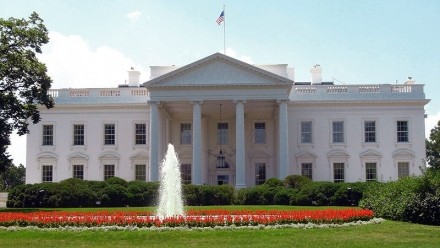
The Slow-Minded Myth about a Fast-Tracked Policy
In light of Obama’s most recent State of the Union speech, February might well be the month where the dispute over presidential “fast-track” powers in trade policy—or trade promotion authority (TPA)—comes to a head. In addition to a series of cheesy double entendres, the common discourse between political pundits over fast-track mostly involves the alleged trade-off between effectiveness and accountability in US trade policy. But does a “slow-tracked” nation mean any more accountability than a “fast-tracked” one?
Whether or not you’re a fan of free-trade, history seems to affirm TPA as a “get-things-done” approach. Since the dawn of the post-WWII economy, only one US free trade agreement (with Jordan) has been enacted without TPA. Compare that to the creation of the WTO and the fourteen US free trade agreements that were all made possible through the expedited TPA process.

Still, critics decry TPA as an undemocratic and unaccountable process. The Senate Finance Committee writes to USTR Michael Froman:
“We are not prepared to support TPA legislation that resembles the current framework for consultations or that does not provide mechanisms that enable Congress to hold USTR more accountable throughout the negotiation process or give USTR greater authority to negotiate basic standards on good governance and human rights.”
But hogging trade authority on the Hill doesn’t necessarily mean more accountability.
After all, the shifting of trade authority away from Congress in 1934 began largely as a response to excessive log-rolling, with congressmen favoring the short-term special interests of their local constituencies over the nation’s long-term economic interests. This pre-1934 “accountability” showed its face most infamously in the Smoot-Hawley Tariff, which left the legacy of paralyzing the world economy and US trade.
What critics also forget is that fast-track is not without “tracks”. Congress still possesses an up-down vote in the end, along with a generous array of advisory committees as highlighted by Third Way think tankers, Jon Cowan and Jeff Okun-Kozlowicki:
“It [TPA] also ensures that industry and the public have a critical voice. Within past Trade Promotion Authority legislation, Congress built a system of advisory committees to ensure that trade negotiators were consulting with private sector representatives from the agricultural, labor and environmental communities, among others. Organizations represented on the committees ran the gamut from advocacy groups – including the AFL-CIO, the Environmental Defense Fund, Oceana, Consumers Union and the National Farmers Union – to large U.S. companies like Cargill, General Electric and Kraft Foods.”
Opposing the Trans-Pacific Partnership and so-called globalization is one thing. But when we talk about TPA, we are discussing a means, not an end. TPA—as it did in the past—can act as a more pragmatic gateway towards trade agreements, allowing the US to negotiate with foreign nations in good faith and counteracting the dangerous protectionist instinct of local constituencies. And contrary to the myth professed by TPA critics, all of this can be done while still reserving the same amount of accountability in a slow-tracked setting.
Brendan Connell is a Research Assistant & Intern at the American Security Project covering American competitiveness and issues in trade.






[…] The Slow-Minded Myth about a Fast-Tracked Policy […]
[…] and secrecy of negotiations has been most troubling to many in the U.S. Granting the president fast-track authority to allow the trade deal to go through will be crucial to its passing, and the best way to […]